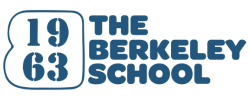Middle School Program

Middle School at The Berkeley School
Our small class sizes encourage personal relationships with teachers, rich discussions with classmates, hands-on problem solving, and plenty of time for reflection on one’s own learning process.
Students’ intellectual, social, and emotional growth are developed through our core academic program, daily advisory, a full slate of core arts classes, robust outdoor education, as well as extracurricular and student leadership opportunities.
Students are engaged in content and learning that is rigorous and relevant and seeks to link their ideas with their decisions. Our supportive learning environment ensures that each student can develop their unique potential to the fullest.
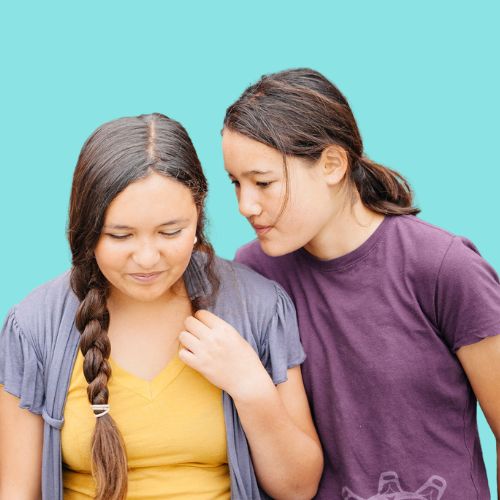


Middle School Curriculum
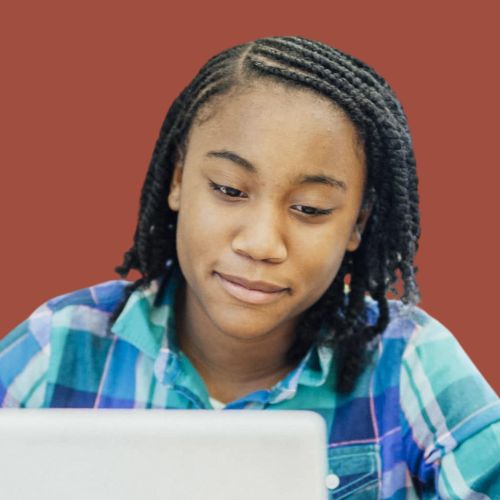
Math
6th grade math: Students begin the year with an overview of geometric 2D and 3D shapes. As they move through the following units, students learn the importance of understanding foundations, trying different approaches to problem solving, selecting and using appropriate tools, explaining their reasoning, and building shared understanding through individual feedback and classroom discussion.
7th grade math (algebra): In 7th grade math, students engage in a problem based curriculum where they solve problems in both mathematical and real-world context. Skills such as critical thinking, applied understanding, and self evaluation are all given as much attention as exploring algebraic concepts.
8th grade math (algebra and geometry): In 8th grade math, students take the foundational knowledge from 6th and 7th grades shapes, proportional relationships, equations, and inequations expand it into key algebra and geometry concepts. Students end the year by developing and strengthening a deeper understanding of mathematical relationships and their applications in both an individual and collaborative learning environment.
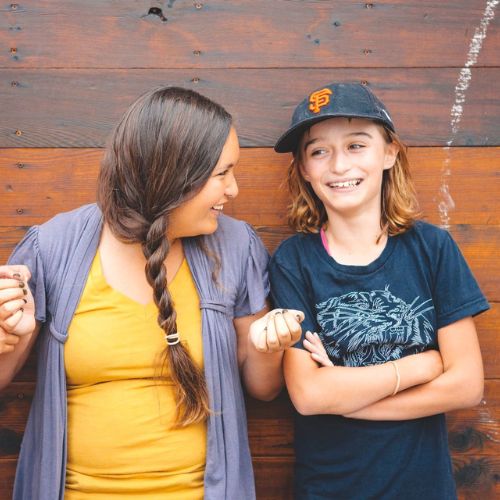
English
6th grade students begin the year by exploring various types of literature, such as short stories, graphic novels, poetry, journals, and technical journals. Students develop comprehension and critical thinking skills in Socratic seminars, where they also practice public speaking, giving and receiving critical feedback, clarifying questions, and supporting their arguments. In literature, students work to understand plot, setting, character development, theme, imagery, point of view, and foreshadowing. Daily writing and editing assignments improve spelling, grammar, punctuation, and mechanics. Students also learn how to write various forms of essays, such as expository, narrative, argumentative, research, reflective, and critical.
7th grade students explore various forms of literature such as short stories, novels, and films to develop their analytical and comprehension skills, focusing on literary concepts such as context, imagery, motif, juxtaposition, fatal flaws, unreliable narrators, doppelgangers, and symbolism. They engage in Socratic discussions by honing questions, research texts, and participating in structured classroom debates. Daily writing prompts encourage a regular reflective writing process, while reading responses require textual evidence and original observations, reinforcing basic body paragraph skills. Throughout the year, students complete assignments on grammar, composition, and vocabulary.
8th grade students improve their writing and reading skills to better understand the complexity and assumptions of language. Throughout the year, they use literary concepts such as paradox, irony, symbol, motif, and juxtaposition to uncover deeper meanings and compare imagery in stories. Students enhance their vocabulary through group discussions and visual projects, and practice responding to contextual videos and articles. Engaging in Socratic discussions, students also focus on grammar, identifying parts of speech, and sentence subjects. They also refine essay writing by practicing outlining, developing theses, citing sources, and analyzing quotations to build balanced, argumentative essays.
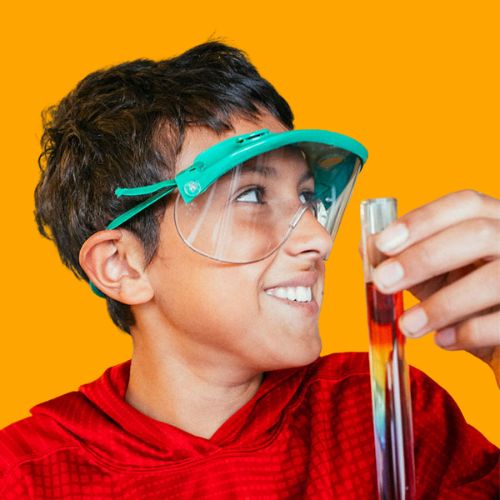
Science
6th Grade students begin the year with a study of earth science and Bay Area geology and topography leading up to a three-day camping trip to Point Reyes National Seashore. Students then delve into the scientific method and apply an inquiry-led approach to studies of matter, energy, heat, water movement, climate, and cell fertilization. Puberty education is also covered.
Major projects:
- Cardboard arcade
- Clem Miller
- Bay Area Maker Faire
- Hatch chickens
7th grade students begin the year with an introduction into the design process and engineering leading up to the Bay Area Maker Faire. Students then delve into an understanding of investigation and data collection, information, charts, and peer review. In the 2nd semester, students move into life sciences with attention to animal cells, plant cells, genetics, heredity, reproductive systems, and sexual education.
Major projects:
- Bay Area Maker Faire
8th grade students begin the year with an introduction into robotics, building on previous topics and introducing circuitry and more advanced coding leading up to the Bay Area Maker Faire. The year-long curriculum is a focus on physics, energy, and motion (Newton’s Laws of Motion), scientific journals, biases, the periodic table, and chemical bonding,
Major projects:
- Egg drop
- Computer Science Week
- Bay Area Maker Faire
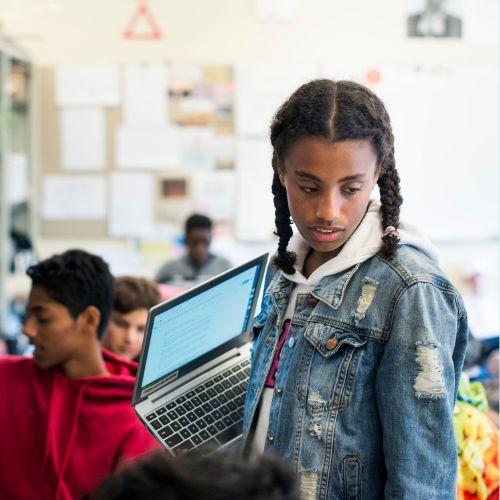
Spanish
6th grade Spanish begins our immersion program. Students begin by building vocabulary with descriptions (yo soy, tu eres, nosotros somos) related to daily school activities. Daily routines involve verbal drills and real conversations. Students also delve into the cultures of Spanish-speaking countries with attention to Mexican history, holidays, and folklore.
7th grade Spanish begins with a review of basic conversational phrases. Students continue to build on prior knowledge using drills, classroom conversations, and independent study. Working in small groups, students move through a differentiated curriculum while being assessed using Duolingo and Babbel learning tools. Students also continue their studies of Spanish-speaking countries with a focus on geography, capitals, main cities, flags, government, and cuisines.
8th grade Spanish hones in on language and conversational skills. Students delve into conjugation, vocabulary, pronunciation, and reading and writing in Spanish. Students build speaking skills using games, poetry, dialogue, and chants. Students also continue their studies of Spanish-speaking countries with a focus on populations, traditional dress, history, customs, and literature.

Physical Education
Middle school Physical Education emphasizes refining techniques and tactical practices in individual and team settings. P.E. covers skills such as overhand throwing, catching, striking, running to kick a ball, focusing on body mechanics, spatial awareness, and hand-eye/foot-eye coordination. Social skills include teamwork (listening, questioning, persuading, respecting, supporting, participating) and sportsmanship (honesty, fairness, respect, graciousness).
Students engage in athletic team-building activities to develop physical and social-emotional skills, enhancing balance, timing, and flexibility through stretches, calisthenics, bilateral movements, and midline-crossing activities.
The program encourages leadership, stepping out of comfort zones, and maintaining a healthy lifestyle. It prepares students for high school and beyond, using assessment tools like rubrics, checklists, video recordings, self-assessment, teacher observation, and feedback.
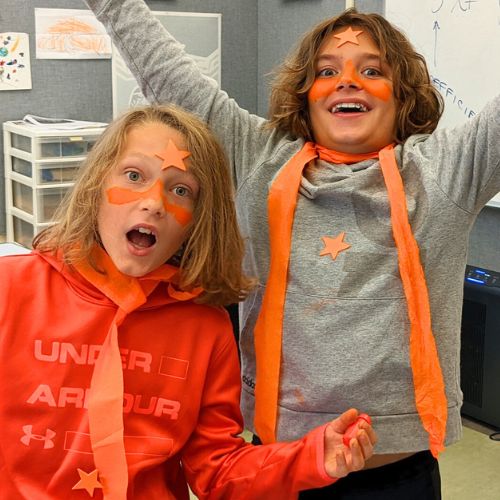
Art
In middle school art, students develop critical thinking and a deep appreciation for contemporary art through project-based participation, assessed through their engagement, risk-taking, dedication, and enthusiasm rather than perfection. Students work in several mediums including sculpting, ceramics, and carved wood to create work inspired by local and international artists. Topics of discussion that influence artwork created throughout the year include themes that address social justice, immigration, politics, identity, and the impact of art in civic engagement.
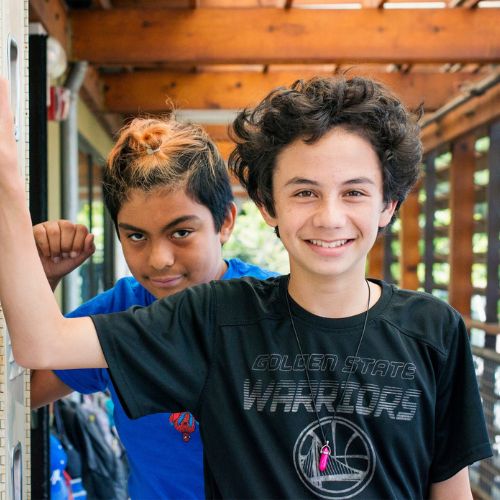



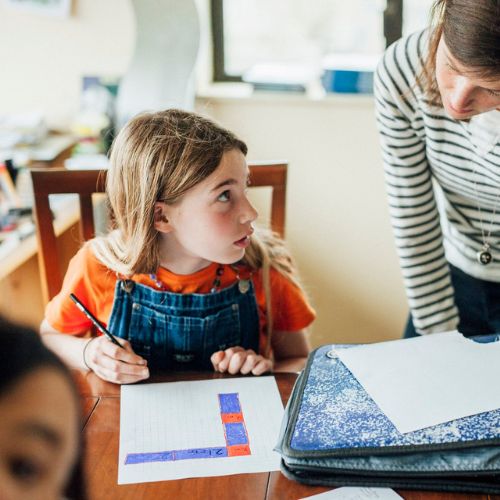

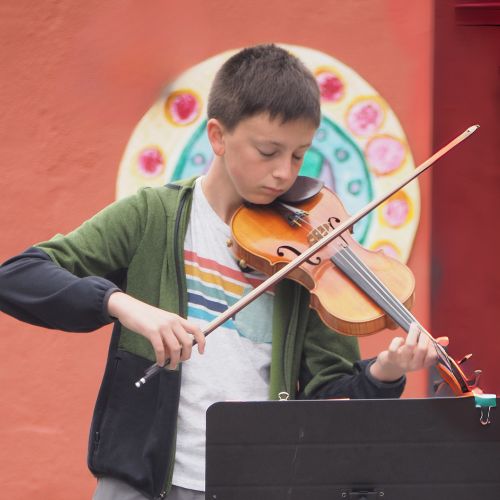

Focus on civic engagement

Middle School Spotlights

8th Grade Graduation Trip to Costa Rica
A key aspect of our mission is to foster a real sense of community through experiential learning. In a collaboration of our civic engagement and Spanish programs, our 8th grade students travel to Costa Rica for a week-long immersion experience. Students spend seven days in San José, Sarapiquí, Arenal, and La Cruz learning about the history, culture, wildlife, and cuisine.
During the trip, students volunteer at Santa Rosa National Park alongside local students. Working together, students actively participate in the improvement and demarcation of trails, trash clean up, and the installation of educational signage aimed at preventing forest fires.

Sustainability Showcase
Middle school students put their learning into action by creatively tackling environmental challenages identified in their own community. Students transform everyone waste into sustainable solutions, thus demonstrating the power of small actions. By repairing broken items, repurposing and reimagining waste, students share their passions of civic engagement with the community demonstrating the power and impact each of us possess in the effort to reduce waste.
This annual event offers a hands-on experience, with students leading activities that promote creative upcycling and sustainable practices. Students take the initiative to explain the larger issues surrounding waste helping people understand how each of us can make a difference in our daily lives. This showcase goes beyond simple projects–it highlights how young students can deepen their understanding of environmental stewardship and civic responsibility, inspiring others to join them in making a positive and meaningful impact in our community.
Student Engagement Team
Julia Shields
(she/her)
4th-6th Academic Learning Specialist
Jennifer Tilson
(she/her)
6th-8th Academic Learning Specialist
Stephen Cahill
(he/him)
K-8 Social-Emotional Learning Specialist
Emily Crawford
(she/her)
Middle School Dean of Students
